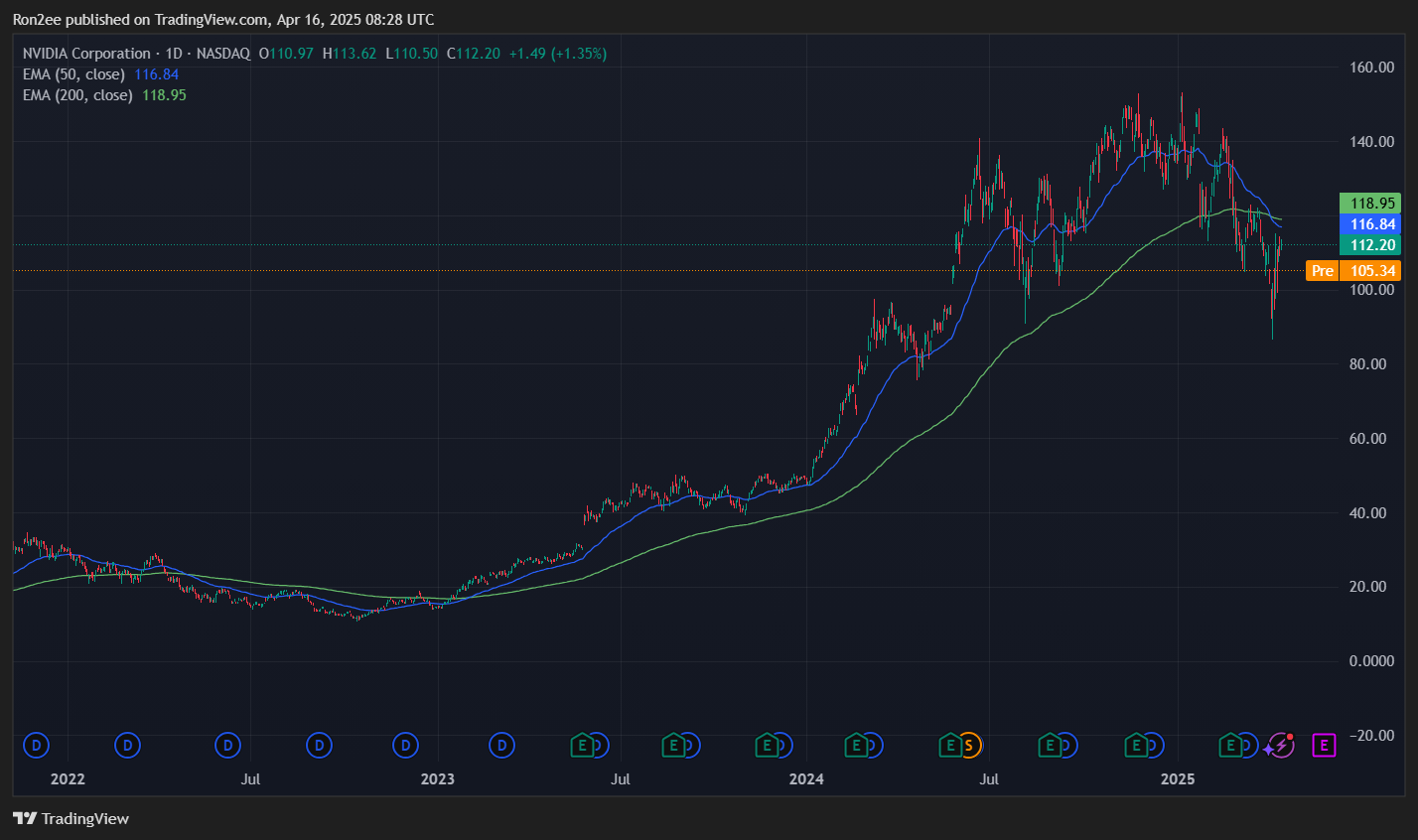News
Market insider picks 5 altcoins that could make 20-year-olds millionaires by 2025
Published
5 months agoon
By
admin
Disclosure: This article does not represent investment advice. The content and materials featured on this page are for educational purposes only.
Young investors are eyeing five lesser-known altcoins that could skyrocket by 2025, transforming modest investments into wealth.
Young investors are searching for the next big opportunity in the crypto world. A seasoned analyst has spotlighted five lesser-known digital currencies that might skyrocket in value by 2025. These altcoins could transform modest investments into substantial wealth. Discover which cryptocurrencies could be the game-changers for the new generation of investors.
CYBRO presale approaches $4M milestone, sees 300% price surge
The CYBRO presale continues to attract attention across the crypto landscape, now in its sixth phase and nearing a notable $4 million raised. Since launch, CYBRO’s token price has surged 300%, climbing from $0.01 to $0.04 and capturing the interest of investors eager to participate in what aims to be a revolutionary DeFi project.
CYBRO, a DeFi platform powered by the advanced Blast Layer-2 solution, offers elevated yields on ETH and stablecoins, with AI-enhanced tools to optimize crypto earnings. Early investors with $1,000 or more in CYBRO can access the Pre-Alpha Yield Program, unlocking weekly variable ETH yields available post-Token Generation Event (TGE)—a compelling incentive for early adopters.
Early investor advantage – Unlock DeFi’s potential with CYBRO
Built to cater to investors’ needs, the CYBRO app provides a streamlined experience, supporting over 420 wallets and featuring customizable yield options averaging a competitive 10% APY. Users can select vaults by trust score, total value locked (TVL), and APY, tailoring portfolios to individual risk preferences.
CYBRO’s comprehensive tokenomics further bolster its appeal, with benefits including reduced service fees, cashback rewards, lower transaction costs, robust insurance protections, and airdrop opportunities. Currently available at a 40% discount from the anticipated listing price, CYBRO presents an entry point that some analysts suggest could deliver up to 1200% gains over the next year.
Ethereum: Proof-of-Stake blockchain powering DeFi, smart contracts, and fast transactions
Ethereum is a blockchain that uses a system called Proof-of-Stake. It’s known for programmable agreements called smart contracts and a large network of applications. It supports decentralized finance and uses tools like Arbitrum and Polygon to make transactions faster and cheaper. Ethereum introduced a type of token used in many applications for decision-making, utility, and storing value. Transactions need ETH to pay for fees. Since it was started by Vitalik Buterin, Ethereum has grown, changing to Proof-of-Stake with an upgrade called the Merge. Ether (ETH) is important to the system, allowing transactions, rewarding those who stake, and acting as an asset that can be traded and used as collateral.
Chainlink bridging smart contracts with real-world data
Chainlink is a network that helps smart contracts connect with real-world data. Smart contracts on the blockchain become more powerful when they access external information. Chainlink works by fetching data from outside sources, checking it for accuracy, and delivering it securely to smart contracts. It uses multiple nodes to ensure the data is correct. The LINK token pays for data services and rewards those who provide data. This system makes smart contracts more useful by letting them interact with things outside the blockchain.
Aave: decentralized lending on Ethereum with flash loans and AAVE governance
Aave is a cryptocurrency that powers a decentralized lending system on Ethereum. It lets users lend, borrow, and earn interest on crypto assets without middlemen. Aave uses smart contracts to manage funds, relying on code instead of banks. It supports 17 cryptocurrencies for lending and borrowing. Lenders receive aTokens that represent their deposits and earn interest.
Aave is known for flash loans, which are instant and require no collateral but must be repaid within the same block. The AAVE token is central to the system, offering fee discounts and voting rights on changes. It can also be used as collateral with added benefits. The platform includes a Safety Module for staking to manage risks, and AAVE’s limited supply can enhance its value.
Sui: A new layer-1 blockchain enhancing scalability and user experience
Sui is a blockchain platform built to support global users with a secure and scalable environment. It uses a unique object-centric data model and the Move programming language to solve problems found in other blockchains. Sui focuses on making blockchain interactions smoother by removing common hurdles. Features like zkLogin, sponsored transactions, and programmable transaction blocks help make applications more user-friendly. This approach aims to make blockchain technology more accessible and easier to use for everyone.
Uniswap’s UNI: decentralized trading and community governance
Uniswap is a decentralized exchange on the Ethereum blockchain. It uses an automated liquidity protocol, allowing trading without an order book. Users keep full control of their funds, improving security and accessibility. Uniswap’s governance token, UNI, lets holders vote on platform changes like fee structures and token distribution. To encourage loyalty, Uniswap gave 150 million UNI tokens to past users, each receiving 400 UNI tokens worth over $1,000 at launch. As a result, UNI holders can influence the platform’s future direction. Uniswap is the fourth-largest DeFi platform, with over $3 billion in assets. Its open-source technology and free token listing set it apart from centralized exchanges. The blend of decentralized trading and community governance highlights the potential for user-driven financial platforms.
Conclusion
In conclusion, while established cryptocurrencies like ETH, LINK, AAVE, and SUI may offer less potential for rapid gains in the short term, CYBRO stands out as a remarkable opportunity for investors seeking significant returns. As a technologically advanced DeFi platform, CYBRO enhances earnings through AI-powered yield aggregation on the Blast blockchain. Its features include attractive staking rewards, exclusive airdrops, and cashback on purchases, all designed to provide a superior user experience with seamless deposits and withdrawals. By focusing on transparency, compliance, and quality, CYBRO has attracted strong interest from prominent crypto investors and influencers. This positions it as a promising project for those looking to maximize their investments during the current market uptrend.
For more information, visit the official CYBRO website and join the community on X, Telegram, and Discord.
Disclosure: This content is provided by a third party. crypto.news does not endorse any product mentioned on this page. Users must do their own research before taking any actions related to the company.
Source link
You may like


Solana Retests Bearish Breakout Zone – $65 Target Still In Play?


How Expanding Global Liquidity Could Drive Bitcoin Price To New All-Time Highs


Apple Delists 14 Crypto Apps in South Korea Including KuCoin and MEXC Exchanges Amid Regulatory Crackdown


Athens Exchange Group eyes first onchain order book via Sui


Futureverse Acquires Candy Digital, Taps DC Comics and Netflix IP to Boost Metaverse Strategy


Court Grants Ripple And SEC’s Joint Motion To Suspend Appeal
Apple
Apple Delists 14 Crypto Apps in South Korea Including KuCoin and MEXC Exchanges Amid Regulatory Crackdown
Published
3 hours agoon
April 16, 2025By
admin
Apple has delisted 14 crypto apps in South Korea at the request of one of the country’s regulators.
South Korea’s Financial Intelligence Unit (FIU), an anti-money laundering agency, issued the requests.
The regulator claims the banned apps involved foreign virtual asset operators conducting “unreported business activities.”
Apple’s list of blocked apps includes the crypto exchange giants KuCoin and MEXC. Last month, Google Play delisted both of those exchanges and 15 other crypto operators at the FIU’s request.
The regulatory crackdown materializes as crypto adoption swells across South Korea. The Seoul-based news agency Yonhap, citing data released by the South Korean government, reported that as of late February of this year, 16.29 million people have opened accounts on Upbit, Bithumb, Coinone, Korbit and Gopax, the country’s top five domestic crypto exchanges. The country currently has an overall population of nearly 52 million.
Banks in South Korea have also reportedly been rushing to partner with crypto firms as the country’s digital asset regulations become less restrictive.
In February, South Korea’s Financial Services Commission announced that the country would launch a pilot program in the second half of 2025 that allows 3,500 corporate entities to buy crypto for investment and financial purposes. Corporate crypto transactions have been banned in the country since 2017.
Follow us on X, Facebook and Telegram
Don’t Miss a Beat – Subscribe to get email alerts delivered directly to your inbox
Check Price Action
Surf The Daily Hodl Mix
 

Disclaimer: Opinions expressed at The Daily Hodl are not investment advice. Investors should do their due diligence before making any high-risk investments in Bitcoin, cryptocurrency or digital assets. Please be advised that your transfers and trades are at your own risk, and any losses you may incur are your responsibility. The Daily Hodl does not recommend the buying or selling of any cryptocurrencies or digital assets, nor is The Daily Hodl an investment advisor. Please note that The Daily Hodl participates in affiliate marketing.
Generated Image: Midjourney
Source link
Blockchain
Athens Exchange Group eyes first onchain order book via Sui
Published
3 hours agoon
April 16, 2025By
admin

Greek exchange Athens Exchange Group has moved closer to adopting a Sui-based order book following its collaboration with Mysten Labs.
On April 16, the Sui (SUI) team announced that Athens Exchange Group, or ATHEX, had finalized the technical design for an onchain fundraising platform that will leverage zero-knowledge proofs on the Sui blockchain.
ATHEX’s ZK-powered fundraising platform will help the stock exchange enhance its offering with privacy and speed, bolstering its growth in traditional capital markets.
This nod to blockchain innovation and integration follows Sui contributor Mysten Labs’ partnership with the Athens Exchange Group in March 2024.
The collaboration between the two platforms aims to leverage their respective ecosystems to deliver the technical design for ATHEX’s Electronic Book Building (EBB), the exchange’s fundraising feature. By tapping into Sui’s technology and tooling, the company will be able to integrate zero-knowledge proofs into EBB’s bidding process.
Currently, Athens Exchange Group and Mysten Labs are eyeing a proof of concept, with this a key milestone towards building the first onchain order book for a stock exchange.
“The focus on privacy-preserving mechanisms, combined with Sui’s unparalleled speed and security, will enable us to build a state-of-the-art PoC that can evolve into a full-fledged onchain order book, setting a new benchmark for the industry,” said Dr. Kostas Kryptos Chalkios, Chief Cryptographer and Co-Founder of Mysten Labs
ATHEX will benefit from a platform that combines privacy-preserving mechanisms, speed and security.
Sui’s capacity to scale and handle transactions in parallel, with industry-leading throughput will be crucial to the stock exchange.
“By integrating zero-knowledge proofs, we aim to uphold the highest standards of compliance and data integrity while boosting operational efficiency for all market participants,” said Nikos Porfyris, chief operating officer at Athens Exchange Group.
Sui is the 10th largest blockchain by total value locked per DeFiLlama with over $1.18 billion in TVL.
Source link
cryptocurrency
AI crypto tokens at risk as Nvidia faces restrictions on China exports
Published
11 hours agoon
April 16, 2025By
admin
AI-focused crypto tokens are seeing a dip as Nvidia, the top AI chipmaker fueling the space, could soon take a major financial hit due to new U.S. export restrictions.
In a filing on April 14, Nvidia said it expects around $5.5 billion in charges for the first quarter of fiscal year 2026 because of U.S. government rules limiting its AI chip sales to China.
On April 9, officials told Nvidia it now needs special export licenses for its popular H20 chips and others with similar capabilities. The new restrictions target China, Hong Kong, and Macau, with the government warning that the chips could end up powering Chinese supercomputers.
The H20 chip is the most advanced AI chip Nvidia is currently allowed to sell in China under the earlier rules. It’s reportedly been used by Chinese AI startup DeepSeek to train models, something that has raised concerns among U.S. lawmakers.
Even though Nvidia said it plans to spend hundreds of millions over the next four years making some AI chips in the U.S., that hasn’t stopped the stock from sliding after its latest filing and the expected hit to future revenues. NVDA dropped 6.3% in after-hours trading on April 15 to $105.10, and it’s down about 16.45% so far this year.
Nvidia’s decline mirrors a wider pullback in tech as Trump’s tariff escalation rattles investor confidence across the sector. Other prominent tech stocks were also in the red, with Apple down 0.20% from the previous close to $202.14, Microsoft off 0.56% at $385.73, Alphabet sliding 1.71% to $156.31, and Amazon dropping 1.33% to $179.59.
Adding to Nvidia’s troubles, a “death cross” has formed on the 1-day NVDA/USD chart, a bearish technical signal where its 50-day moving average drops below the 200-day one. The last time this happened was in April 2022, and Nvidia’s stock plunged nearly 50% in the following six months.

That’s got investors in AI crypto tokens on edge, as these tokens have often reacted to Nvidia-related news mostly due to the fact that Nvidia’s hardware plays a central role in powering the AI infrastructure that many of these projects rely on.
For instance, in December, reports of China launching an antitrust probe into Nvidia caused the AI crypto token market cap to drop by over 14% in a single day. In the past, a surge in the Nvidia stock price has also resulted in bullish rallies for AI tokens.
Following Nvidia’s latest filing, the total market cap of AI-related tokens has fallen 3.7% in the past 24 hours, now sitting at around $20.1 billion. Trading volume also declined, signaling weaker demand.
Near Protocol (NEAR), the biggest AI crypto by market cap, slid 5.3% over the past day. Other major tokens like Internet Computer (ICP), Render (RENDER), Sei (SEI), Virtuals Protocol (VIRTUAL), and Akash Network (AKT) also lost between 5% and 12%.
Source link

Solana Retests Bearish Breakout Zone – $65 Target Still In Play?

How Expanding Global Liquidity Could Drive Bitcoin Price To New All-Time Highs

Apple Delists 14 Crypto Apps in South Korea Including KuCoin and MEXC Exchanges Amid Regulatory Crackdown

Athens Exchange Group eyes first onchain order book via Sui

Futureverse Acquires Candy Digital, Taps DC Comics and Netflix IP to Boost Metaverse Strategy
Court Grants Ripple And SEC’s Joint Motion To Suspend Appeal

AVAX Falls 2.1% as Nearly All Assets Trade Lower

What is a VTuber, and how do you become one in 2025?

Top Expert’s Update Sets $10 Target

How Academia Interacts With The Bitcoin Ecosystem

AB DAO and Bitget Launch Dual Reward Campaign, Distributing $2.6M Worth of $AB Globally

AI crypto tokens at risk as Nvidia faces restrictions on China exports

Coinbase Urges Australia to Vote for Crypto Progress in May

How High Would Pi Network Price Go If Pi Coin Adopts Transparency to Avoid Mantra Pitfalls

XRP’s ‘Rising Wedge’ Breakdown Puts Focus on $1.6 Price Support

Arthur Hayes, Murad’s Prediction For Meme Coins, AI & DeFi Coins For 2025

Expert Sees Bitcoin Dipping To $50K While Bullish Signs Persist

Aptos Leverages Chainlink To Enhance Scalability and Data Access

Bitcoin Could Rally to $80,000 on the Eve of US Elections

Crypto’s Big Trump Gamble Is Risky

Institutional Investors Go All In on Crypto as 57% Plan to Boost Allocations as Bull Run Heats Up, Sygnum Survey Reveals

Sonic Now ‘Golden Standard’ of Layer-2s After Scaling Transactions to 16,000+ per Second, Says Andre Cronje

Ripple-SEC Case Ends, But These 3 Rivals Could Jump 500x

3 Voting Polls Show Why Ripple’s XRP Price Could Hit $10 Soon

Has The Bitcoin Price Already Peaked?

A16z-backed Espresso announces mainnet launch of core product

The Future of Bitcoin: Scaling, Institutional Adoption, and Strategic Reserves with Rich Rines

Xmas Altcoin Rally Insights by BNM Agent I

Blockchain groups challenge new broker reporting rule

I’m Grateful for Trump’s Embrace of Bitcoin
Trending

 24/7 Cryptocurrency News5 months ago
24/7 Cryptocurrency News5 months agoArthur Hayes, Murad’s Prediction For Meme Coins, AI & DeFi Coins For 2025

 Bitcoin3 months ago
Bitcoin3 months agoExpert Sees Bitcoin Dipping To $50K While Bullish Signs Persist

 24/7 Cryptocurrency News3 months ago
24/7 Cryptocurrency News3 months agoAptos Leverages Chainlink To Enhance Scalability and Data Access

 Bitcoin5 months ago
Bitcoin5 months agoBitcoin Could Rally to $80,000 on the Eve of US Elections

 Opinion5 months ago
Opinion5 months agoCrypto’s Big Trump Gamble Is Risky

 Bitcoin5 months ago
Bitcoin5 months agoInstitutional Investors Go All In on Crypto as 57% Plan to Boost Allocations as Bull Run Heats Up, Sygnum Survey Reveals

 Altcoins3 months ago
Altcoins3 months agoSonic Now ‘Golden Standard’ of Layer-2s After Scaling Transactions to 16,000+ per Second, Says Andre Cronje

 Price analysis5 months ago
Price analysis5 months agoRipple-SEC Case Ends, But These 3 Rivals Could Jump 500x


